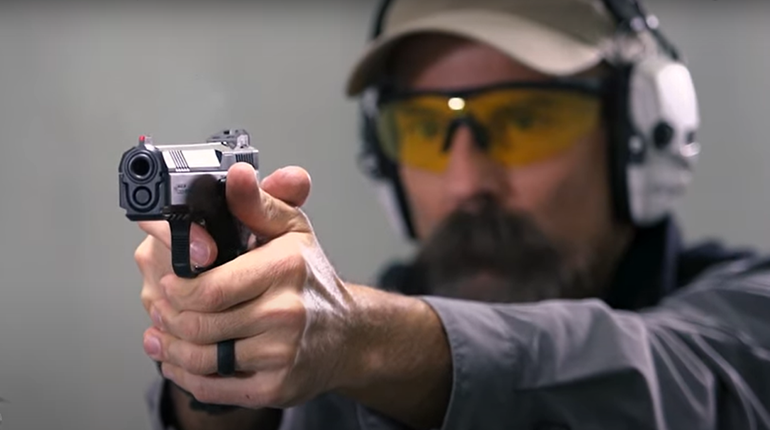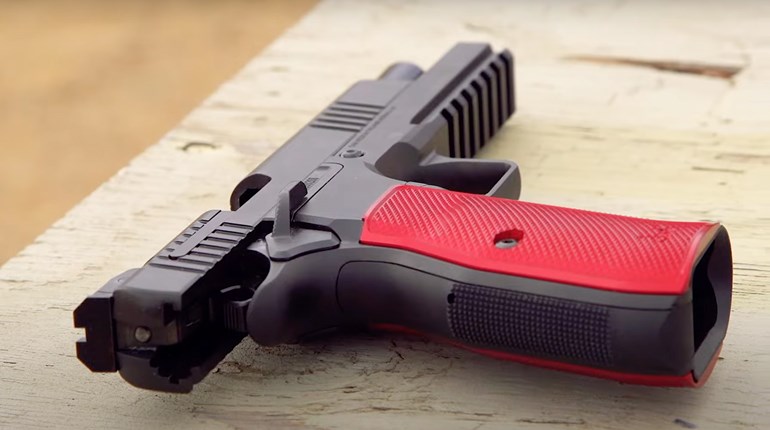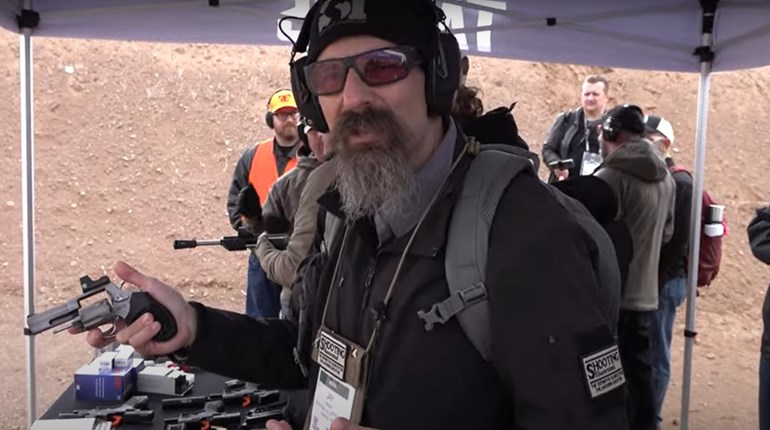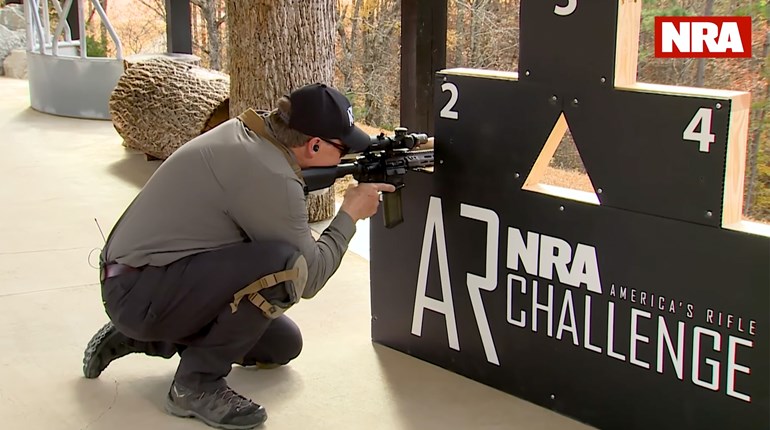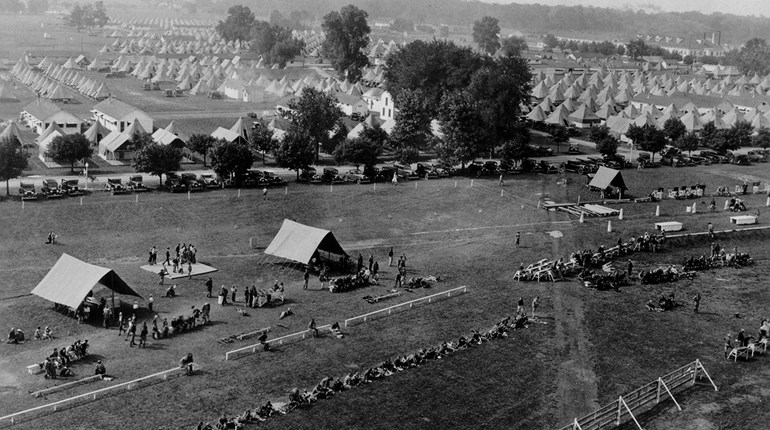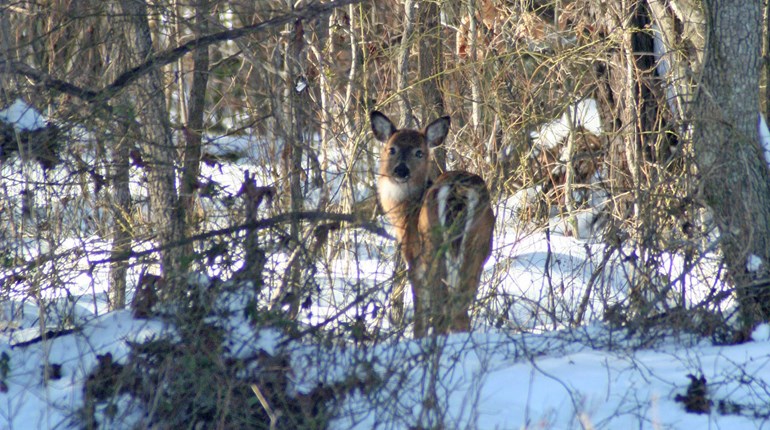** When you buy products through the links on our site, we may earn a commission that supports NRA's mission to protect, preserve and defend the Second Amendment. **

A piercing shriek split the early summer morning, alerting everyone in the house. As we came running, we saw our dog Tippy, a Siberian husky/border collie cross, sitting calmly next to the screen door. At her feet lay a Saturday-edition newspaper. Just outside the screen door stood the paper-delivery girl, clutching her forearm. It was normal for her to crack the screen door and leave our paper there; unfortunately for her, this morning we'd accidentally left the "real" door ajar. Tippy had seen a strange hand enter her home, and in utter silence—without so much as a warning growl—she had bitten the papergirl. Luckily, she had only nipped and released the young teen's arm and hadn't broken the skin. But that incident illustrated that although Tippy made a great pet, she wasn't necessarily an ideal home-defense dog.
One of the first pieces of advice you'll receive when you begin exploring your own home-defense strategy is to get a dog. It's perfectly good advice; although there's remarkably little out there in the way of scientific studies indicating just how much of a deterrent a dog is to a potential home invader, it only stands to reason that most burglars don't want to be interrupted or bitten. Even a tiny dog can make an incredible racket, raising the alarm in an otherwise sleeping household...even alerting neighbors if the homeowners aren't there. What's more, some of the smallest dogs can actually be remarkably aggressive. For example, dachsunds were originally bred for badger hunting and boast a strong prey drive and shockingly strong jaws (as anyone who's ever been bitten by a "wiener dog" can attest). So, for many people, any dog can certainly be part of their home-defense plan.

That said, some dog breeds—even working breeds—aren't ideal for defense. Take the example of our husky/border collie pet: Despite their size, strength and wild, lupine appearance, Siberian huskies tend to be both too quiet (huskies as a rule don't bark much) and too friendly to be very helpful when someone is trying to pick your front deadbolt. Border collies, although highly social and with a strong protective instinct developed through generations of breeding as shepherd dogs, also tend to be very friendly towards people and not very vocal.

On the other hand, it's important to remember that even a dog you've chosen specifically to guard your home is going to be a part of your family. You need an animal that you can trust to be a companion to your family and to protect you. This is where it's crucial to seek expert advice, both for selecting a specific dog and for training that dog. This shouldn't be an impulse purchase; finding your new family member should ideally be a process that incorporates research and listening to people who've devoted their lives to strengthening the ancient symbiosis between canine and human. It won't stop there, either: You and your dog will both need to work on your bond with ongoing training, even participating in specific sports that will help keep you both sharp.
Thinking about getting a personal-defense dog? Don't miss this terrific article from Barbara Baird on Shooting Illustrated's website. In it, three personal-protection dog trainers weigh in with the need-to-know details of finding and training a family dog to protect your home.
One of the first pieces of advice you'll receive when you begin exploring your own home-defense strategy is to get a dog. It's perfectly good advice; although there's remarkably little out there in the way of scientific studies indicating just how much of a deterrent a dog is to a potential home invader, it only stands to reason that most burglars don't want to be interrupted or bitten. Even a tiny dog can make an incredible racket, raising the alarm in an otherwise sleeping household...even alerting neighbors if the homeowners aren't there. What's more, some of the smallest dogs can actually be remarkably aggressive. For example, dachsunds were originally bred for badger hunting and boast a strong prey drive and shockingly strong jaws (as anyone who's ever been bitten by a "wiener dog" can attest). So, for many people, any dog can certainly be part of their home-defense plan.

That said, some dog breeds—even working breeds—aren't ideal for defense. Take the example of our husky/border collie pet: Despite their size, strength and wild, lupine appearance, Siberian huskies tend to be both too quiet (huskies as a rule don't bark much) and too friendly to be very helpful when someone is trying to pick your front deadbolt. Border collies, although highly social and with a strong protective instinct developed through generations of breeding as shepherd dogs, also tend to be very friendly towards people and not very vocal.

On the other hand, it's important to remember that even a dog you've chosen specifically to guard your home is going to be a part of your family. You need an animal that you can trust to be a companion to your family and to protect you. This is where it's crucial to seek expert advice, both for selecting a specific dog and for training that dog. This shouldn't be an impulse purchase; finding your new family member should ideally be a process that incorporates research and listening to people who've devoted their lives to strengthening the ancient symbiosis between canine and human. It won't stop there, either: You and your dog will both need to work on your bond with ongoing training, even participating in specific sports that will help keep you both sharp.
Thinking about getting a personal-defense dog? Don't miss this terrific article from Barbara Baird on Shooting Illustrated's website. In it, three personal-protection dog trainers weigh in with the need-to-know details of finding and training a family dog to protect your home.














